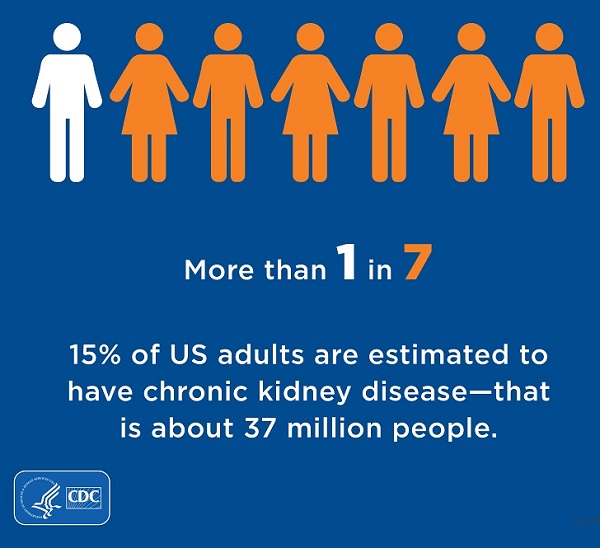What is Renal Failure? It is the kidney’s inability to effectively remove wastes, toxins and electrolytes from the body.
Causes of Chronic Renal Failure: Diabetes, high blood pressure, kidney stones or cancer and frequent kidney infections are a few of the diseases or conditions which may cause chronic renal failure.
Risk Factors: Diabetes, high blood pressure, smoking, heart disease, obesity, ethnicity such as African American, Native American or Asian American increase risk of developing renal failure, family history and older age are all risk factors. Chronic renal failure also has many complications associated with the disease which can impact many other organs of the body.
Signs and Symptoms: Symptoms usually develop gradually as the kidneys become less efficient at removing wastes from the body. Symptoms common in renal failure include:
- Swelling of feet and ankles
- Muscles cramps or twitching
- Persistent itching
- Loss of appetite
- Fatigue and weakness
- Sleep disturbances
- Shortness of breath
- Decreased urination
- High blood pressure
- Decreased mental sharpness
Management Treatment: Chronic renal failure is diagnosed by your health care provider using physical exam, blood and urine tests and imaging tests. Sometimes the provider may recommend a biopsy to determine what is causing the kidney problem. Treatment is focused on determining the cause, such as high blood pressure, uncontrolled diabetes or heart failure, which when treated can improve kidney function. Diet also plays an important role in improving kidney function and reducing the work of the kidneys. If long term damage to the kidneys occur and they are no longer able to remove waste and toxins effectively, end stage kidney failure may occur resulting in the need for dialysis or placement on a renal transplant list.
Support: Connect with others who have kidney disease through your provider, social media or local support groups. Exercise regularly with a group, follow dietary recommendation, drink adequate fluids and get plenty of rest. Listen to your body. For more information there are many helpful websites such as the one listed below.
References: (Information): https://www.mayoclinic.org/diseases-conditions/chronic-kidney-disease/symptoms-causes/syc-20354521 (Photo): cdc.org



